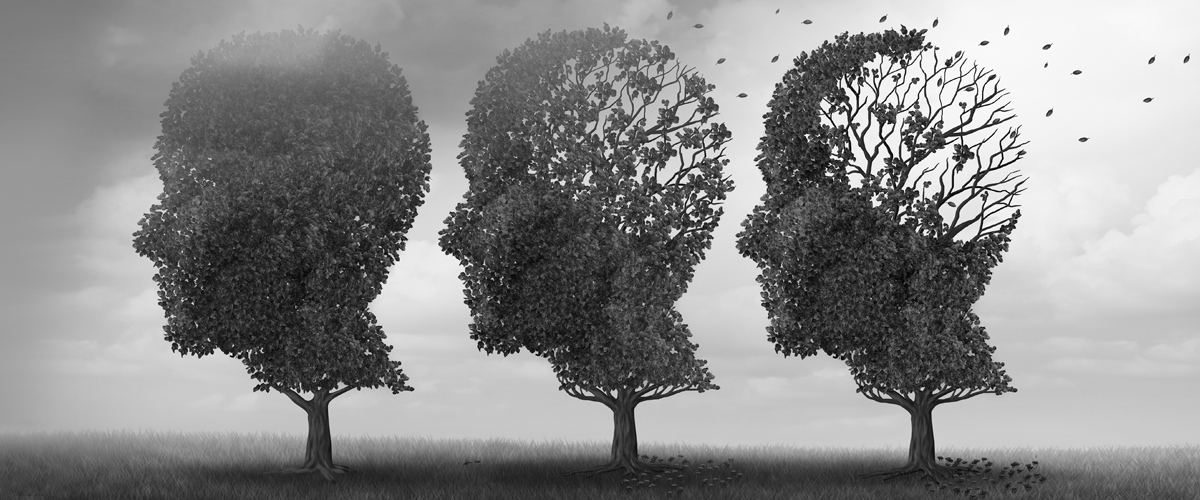Is it Alzheimer’s or Aging?
As people age, they may wonder if memory problems are a reflection of natural cognitive decline or a sign of Alzheimer’s.

As we age our brains change, and our cognitive abilities change too. The question many people have, according to Dr. Richard Isaacson, a neurologist and the founder and director of the Alzheimer’s Prevention Clinic at Weill Cornell Medicine and NewYork-Presbyterian, is if these changes in cognitive abilities are early signs of Alzheimer’s disease or just aging.
In recognition of Alzheimer’s Awareness Month, Health Matters spoke to Dr. Isaacson to get a better understanding of the difference between Alzheimer’s and expected cognitive changes that come with aging, and how everyone can take steps to improve their brain health and reduce the risk of developing Alzheimer’s disease, as a new study by Dr. Isaacson and his colleagues demonstrates. Here are some common areas of concern:
Forgetting words or where you put things
If a word is on the tip of your tongue but you remember it later or if you lose your car keys but find them soon after, that’s OK. Such incidents are suggestive of an age-related change rather than a neurodegenerative disease that can lead to dementia. With Alzheimer’s disease, someone won’t be able to recall a word or name at all, or will lose their keys and can’t retrace their steps to find them.
Inability to perform common tasks
With age-related cognitive decline, your processing speed or ability to perform common tasks might slow down, but it doesn’t interfere with your day-to-day life. Alzheimer’s disease affects ability to complete everyday tasks independently. For instance, a person might get lost while driving to an appointment or never remember the appointment in the first place.
Symptoms beyond memory loss
Alzheimer’s is a neuropsychiatric disease, meaning it’s not just memory loss and changes in cognitive skills. It can increase depression and anxiety and cause changes in mood, behavior and sleep patterns. Alzheimer’s is a progressive brain disease. Depending on which part of the brain the disease impacts, the clinical symptoms will be different for each patient.
Overstimulation from screens and technology
We live in a world of smartphones, tablets, televisions and stimulation coming from every angle. The brain can only handle so much. Attention problems need to be distinguished from cognitive problems. If someone is texting and not paying attention and they’re asked, “What did I just say to you?” and they don’t remember, that’s not an aging or dementia problem. That’s an attention problem.
Severity of memory loss over time
The best way to differentiate between memory loss primarily due to the natural aging process and cognitive deterioration from Alzheimer’s is by performing a detailed cognitive assessment. In other words, looking at how your brain is doing now and later checking whether function has changed over time. At the Alzheimer’s Prevention Clinic, we use computer-based tests to create a baseline of cognitive ability, which we then assess at regular intervals to identify any problems and better understand the cause of those changes.
Regardless of whether memory issues are age related or due to Alzheimer’s, there are many steps people can take to slow cognitive decline. As research continues into this disease, Dr. Isaacson says certain lifestyle changes — such as diet, exercise, and challenging your brain by learning a new skill or taking up a new hobby — can help maintain or improve memory and reduce a person’s risk of developing Alzheimer’s disease.
Richard Isaacson, M.D., a neurologist at NewYork-Presbyterian/Weill Cornell Medical Center, is the founder and director of the Alzheimer’s Prevention Clinic, Weill Cornell Memory Disorders Program, and a trustee of the McKnight Brain Research Foundation. He is also the author of two bestselling books, The Alzheimer’s Prevention & Treatment Diet and Alzheimer’s Treatment Alzheimer’s Prevention: A Patient & Family Guide.
Additional Resources
Listen to Dr. Isaacson talk about Alzheimer’s on the podcast “This Is Your Brain with Dr. Phil Stieg.”
To learn more about Alzheimer’s prevention and treatment, visit Alzheimer’s Universe.

